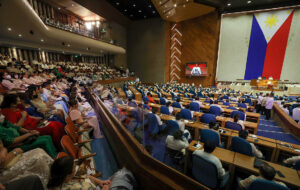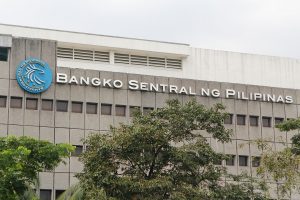Addressing Filipinos’ concerns

The inaugural speech of President Ferdinand Marcos, Jr. was a preamble to his first State of the Nation Address (SONA). The SONA provided a broader explanation and discussion of the concerns, issues, and sectors that need to be prioritized as tackled in the inaugural speech.
Among other important things, the economic agenda of the Marcos Jr. government envisions that the country would achieve middle-income status by 2024 and economic growth of 6.5% to 8% from 2023-2028.
Meanwhile, the headline goal or target for average inflation is 2%-4% between 2024 and 2028. The targets also include improving foreign exchange to between P51-P55 per $1 in 2023-2028, increasing the exports of goods by 6% from 2023-2028, and imports by 8% in the same period.
With the stated economic targets for the next six years, the administration still needs to expound on how these will be achieved.
As part of the economic agenda, it is also noteworthy to state that the importance of making the country an investment destination is rightfully placed. It is also good to know that our government has plans for a medium-term fiscal strategy for the purpose of spending sustainability.
As the concurrent Department of Agriculture secretary, President Marcos Jr. devoted ample time to discussing agricultural development and agrarian reform improvements. Here, the President proffered a paradigm shift in terms of transforming agriculture into a major contributor to the economy.
To make this happen and lessen the burden on the sector, he assured the sector’s stakeholders of financial assistance. He also announced a moratorium on land amortization payments, the provision of loans for farm inputs and implements, a balance in importation, and much-needed collaboration between government agencies.
Other issues that the SONA fittingly addressed were health and social assistance. The president stated that there will be no more lockdowns amid the COVID-19 pandemic as the country needs to balance health and the national economy. This will be complemented by the continuation of the vaccine rollout; Filipinos were encouraged to get their booster shots.
With regard to social protection, the president announced the continuation of the 4Ps program and the cleansing of the list of beneficiaries. These will be to provide better help for the poor, marginalized, and vulnerable population.
Further, Marcos’ emphasis on the role of the private sector and public-private partnerships (PPPs) in terms of investments and innovation was unequivocal and promising, as the ability and credibility of private enterprises spans infrastructure, agriculture, education, and digitalization.
President Marcos Jr. also gave a spot-on analysis on the need for digitalization and modern technology for Philippine society. Particularly, he highlighted the importance of digitalization in improving governance and streamlining the delivery of public goods and services.
One of the most remarkable points in this first SONA pertains to foreign policy. Reiterating his pro-Filipino stance, the president stated that he will not give a square inch of Philippine territory to foreigners and that the “national interest is our primordial guide” in promoting foreign relations.
The second most surprising point is the declaration of the legislative priorities of the presidency. Numbering up to 19 priorities, it means that preparations have been made and that the president has a lot in mind in terms of the country’s political, social, and economic direction.
Very noteworthy in these priorities is the National Government Rightsizing Program (NGRP) proposed by the Department of Budget and Management (DBM). It is “a reform initiative that primarily aims to achieve simplicity, economy, and efficiency in the bureaucracy.”
The NGRP will be able to reduce costs, implement reforms, and improve the delivery of public services by “(i) streamlining the operations of the different agencies and rightsizing their structure and manpower; (ii) undertaking organizational actions that will fortify areas/sectors that need to be strengthened and re-channel resources to the same; and (iii) eliminate functions, programs and projects (F/P/Ps) which are already redundant or no longer necessary,” the DBM briefer stated.
However, these plans of action still need to be explained and so these could address Filipinos’ most urgent concerns particularly within the year.
According to the latest Pulse Asia survey, the top five most urgent national concerns are predominantly economic — “controlling inflation” (57%), “increasing the pay of workers” (45%), “reducing the poverty of many Filipinos” (33%), “creating more jobs” (29%), and “fighting graft and corruption in government” (20%).
In light of the first SONA of the Marcos Jr. presidency, and while triggering more questions about how “things” will be done, the Stratbase Institute is launching a roundtable discussion themed “A Government Agenda for Development in the Marcos Jr. Presidency Post Pandemic.”
To provide more context to the SONA, the activity will discuss recommendations and policy recommendations to the Marcos Jr. administration in the following areas: good governance and development, human capital and labor markets, inclusive growth and the public sector, poverty and inequality, patronage politics and political reforms, and the prospects for democracy and the rule of law.
Specifically, the public exchange will delve into questions on development and governance challenges and opportunities, and expectations in the remainder of the first 100 days or in the first six months under the new government, and other persistent problems and issues.
Victor Andres “Dindo” C. Manhit is the president of the Stratbase ADR Institute.




